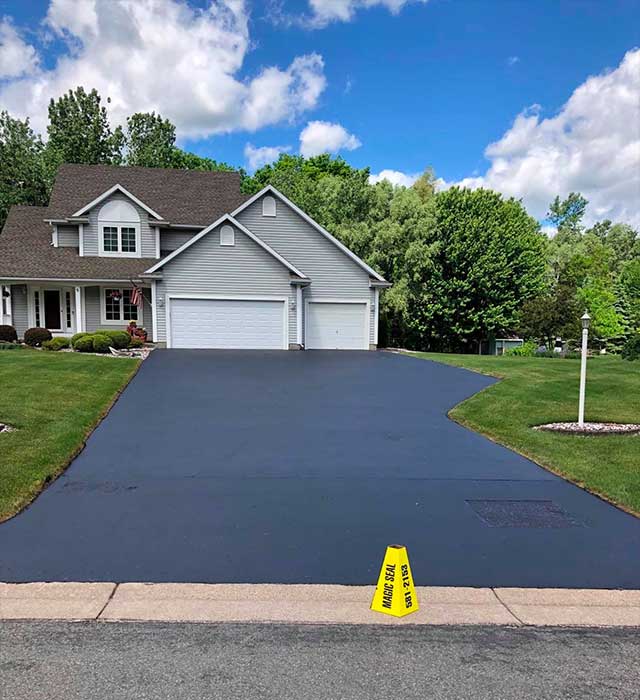Lasting Outcomes: Asphalt Patch Repair With Accuracy Sealing
Lasting Outcomes: Asphalt Patch Repair With Accuracy Sealing
Blog Article
Cold Mix Asphalt Vs. Hot Mix Asphalt: Which Is Right for You?

Make-up Differences
Cold mix asphalt is created by emulsifying the asphalt binder with water and an emulsifying representative prior to mixing it with aggregate. The hot mix asphalt production process involves heating the aggregate and asphalt binder separately prior to incorporating them at the asphalt plant.
Furthermore, cold mix asphalt tends to be much less thick and extra flexible than warm mix asphalt. This adaptability makes it far better matched for locations with higher levels of movement, such as driveways or roadways with rush hour. On the other hand, warm mix asphalt is known for its high toughness and resistance to rutting and splitting, making it a preferred option for freeways and high-traffic roadways where durability is vital.
Setup Process Variances
The procedure of installing cold mix and warm mix asphalt shows noteworthy variations in their demands and treatments. In comparison, hot mix asphalt necessitates a much more intricate installation process. Due to the home heating needs, warm mix asphalt installations are normally lugged out by professionals with specialized devices, making sure an extra structurally sound and permanent result.
Toughness and Long Life Factors
When taking into consideration asphalt options, toughness and long life are crucial elements to assess for long lasting pavement performance. Hot mix asphalt (HMA) is known for its remarkable resilience and longevity. The heats during the laying and blending process enable for better compaction, resulting in a denser and more powerful sidewalk structure. This leads to HMA being more resistant to heavy traffic loads, harsh weather, and the results old compared to cold mix asphalt (CMA)
In regards to longevity, HMA typically outperforms CMA as a result of its superior strength and resistance homes. HMA pavements have a longer life span, needing much less regular repairs and upkeep, which can convert to cost financial savings in the long run. In addition, HMA sidewalks are much more conveniently adjustable to fulfill certain job needs, additionally improving their sturdiness.
Price Considerations
Thinking about the economic effects is a crucial aspect when reviewing the choice in between hot mix asphalt (HMA) and chilly mix asphalt (CMA) for pavement tasks. While the preliminary cost of hot mix asphalt is typically greater than that of chilly mix asphalt, HMA commonly offers a much more cost-effective service in read here the long run due to its remarkable toughness and longevity.
Along with material expenses, it's necessary to take into consideration the expenditures related to installment and upkeep when comparing HMA and CMA. HMA usually needs specialized devices and knowledgeable labor for proper installment, which can influence total job prices. Conversely, CMA is simpler to deal with and can usually be applied using simpler techniques, possibly decreasing installation costs. Eventually, the decision in between HMA and CMA need to think about not just the preliminary cost however also the long-term economic ramifications to determine the most cost-effective choice for the certain sidewalk task.
Environmental Impact Comparison
Contrast of the ecological impacts in between warm mix asphalt (HMA) and cold mix asphalt (CMA) discloses distinct differences in sustainability methods. HMA manufacturing calls for heats, resulting in boosted power consumption and greenhouse gas emissions. The process additionally releases volatile organic compounds (VOCs) and dangerous air toxins (HAPs) right into the atmosphere. On the other hand, CMA is produced and applied at reduced temperature levels, lowering energy usage and discharges considerably. The lower production temperature levels of CMA cause lowered gas intake and reduced degrees of carbon dioxide exhausts, making it a more environmentally friendly option.
Moreover, the use of CMA frequently involves recycling existing asphalt sidewalk, advertising source preservation and decreasing the amount of waste sent out to garbage dumps. By opting for CMA over HMA, roadway building projects can add positively to ecological conservation efforts.
Conclusion
To conclude, the choice in between chilly mix asphalt (CMA) and hot mix asphalt (HMA) relies on numerous variables such as make-up, installation procedure, durability, long life, price, and environmental effect. angle parking. While CMA supplies a fast and cost-effective option for small repair services, HMA makes certain exceptional durability and durability for rush hour areas. Think about these aspects very carefully to establish which kind of asphalt is the best selection for your paving needs

Thinking about the monetary effects is an important facet when examining the selection between hot mix asphalt (HMA) and cool mix asphalt (CMA) for sidewalk jobs. While the initial expense of hot mix asphalt is normally greater than that of chilly mix asphalt, HMA often provides an extra affordable remedy in the long run due to its premium toughness and longevity. cold mix asphalt.Contrast of the ecological impacts between hot mix asphalt (HMA) and cold mix asphalt (CMA) discloses unique differences in sustainability techniques.In conclusion, the option in between cold mix asphalt (CMA) and warm mix asphalt site link (HMA) depends on numerous aspects such as make-up, setup procedure, sturdiness, long life, cost, and environmental effect
Report this page